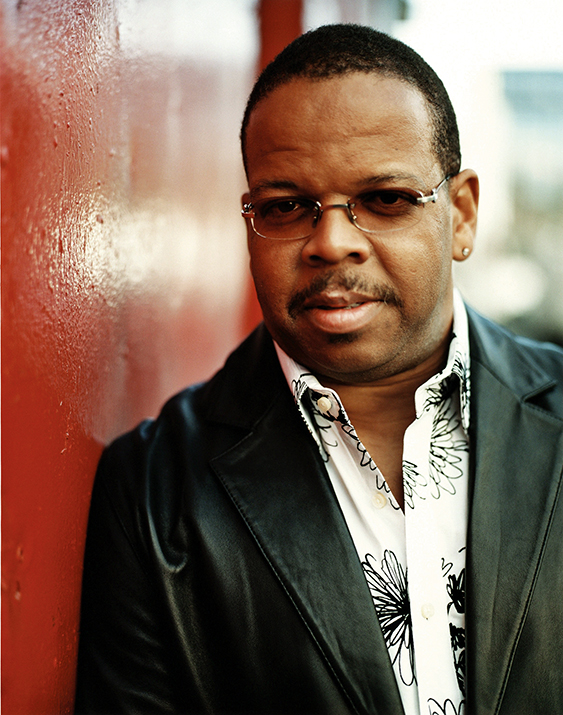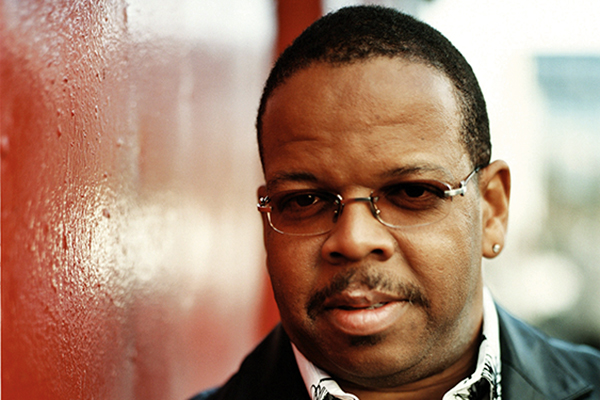
When 27-year-old Chris Burbank first listened to an album by Grammy-winning jazz trumpeter Terence Blanchard back in high school, he was blown away by the warmth, tone and presence of Blanchard’s sound.
“I was thinking, this is what I want to sound like,” Burbank said.
Little did he know, Blanchard would one day be his teacher.
Appointed artistic director of the Henry Mancini Institute in 2011, Blanchard is one of the latest additions to the accomplished faculty at the Frost School of Music.
“It’s quite a treasure, honor and privilege to work with him,” said Burbank, a doctoral student studying jazz performance.
Blanchard was originally approached about the position by Frost Dean Shelton Berg after they became acquainted working together at the University of Southern California several years ago.
Blanchard’s many jazz albums, his interviews on NPR and his scores for movies like “Inside Man” and “Malcolm X,” or even his voice as the trumpet-playing alligator in “The Princess and the Frog,” make him a well-known figure in the music industry.
For one week out of each month, Blanchard brings his musical expertise to UM, where he conducts the Henry Mancini Orchestra, works with graduate students individually, and teaches a small ensemble.
For Blanchard, becoming a good musician is partly a psychological process.
“Our only limitations are our own thoughts, you know?” he said. “The thing that I’ve always been interested in in terms of teaching is challenging young minds.”
The experience of Kendall Moore, who plays trombone in the ensemble, reflects this philosophy.
“He is always addressing our critical thinking,” he said. “When he’s coaching, he is always asking us why we are playing what we are playing.”
Blanchard also tries to make these advanced musicians aware of the potential, both in terms of playing and composing music.
“The way we grow is to always challenge our habits, but you gotta be courageous enough to do it,” he said.
Once a member of Art Blakey and the Jazz Messengers and former artistic director of the Thelonious Monk Institute of Jazz, Blanchard has the air of a seasoned New Orleans musician. After leaning back in his chair and uttering a husky “Whaddya got for me?,” students began playing through their compositions.
With a wave of his arms Blanchard stopped the students to address what he was hearing, often speaking in metaphor.
“Nice tune, man,” he said. “But it’s like a session at Parliament. It’s so polite.”
To Blanchard, there is more to music than just sound. While coaching, he referred to the compositions as stories and conversations.
“That’s when it’s magical – when it feels like real life,” he said to his students.
Burbank, who focuses on his presence while playing, feels that working with Blanchard is nothing less than inspiring.
During a trumpet solo at last year’s Henry Mancini concert, he recalled what Blanchard had told him.
“I remembered what he said about confidence, took a breath and played my heart out,” Burbank said.
During the encore, Blanchard pointed directly at Burbank and gave him the thumbs-up sign.
“He told me he liked my sound,” Burbank said. “Having your hero tell you that is amazing.”
Burbank is not the only one who was familiar with Blanchard before coming to UM.
According to Moore, Blanchard’s albums are something he talks about with his musician friends.
“To find out he was a real human being who was coming to our school, that was a really cool thing,” he said. “I’ve never had an experience like this in school. Period.”
His students may be excited to work with an iconic jazz figure, but Blanchard is also happy to be at UM.
“The reputation precedes itself,” he said.“It’s been really cool.”
Blanchard hopes to continue opening his student’s minds.
“I think the main thing about what I want to bring to this program is the notion – the true notion, not the pie in the sky notion – that anything is possible,” he said.






